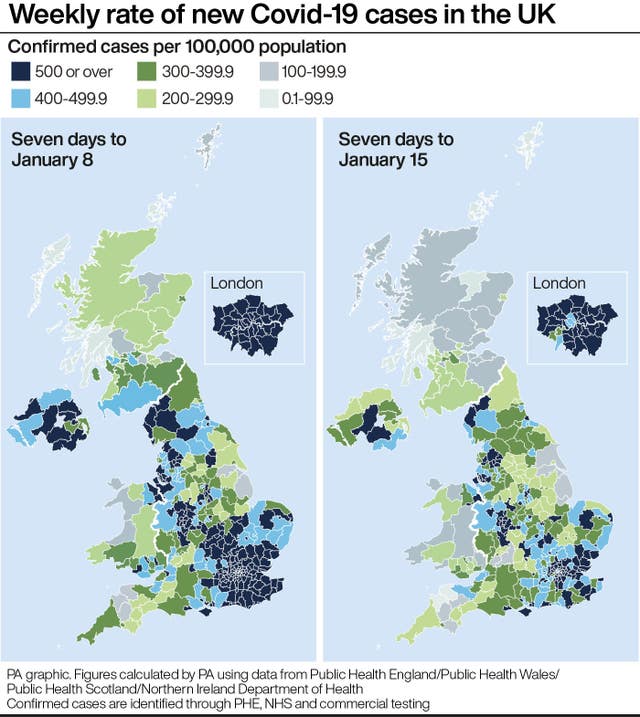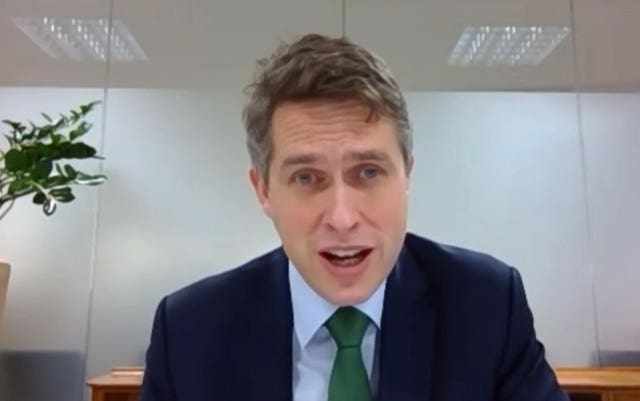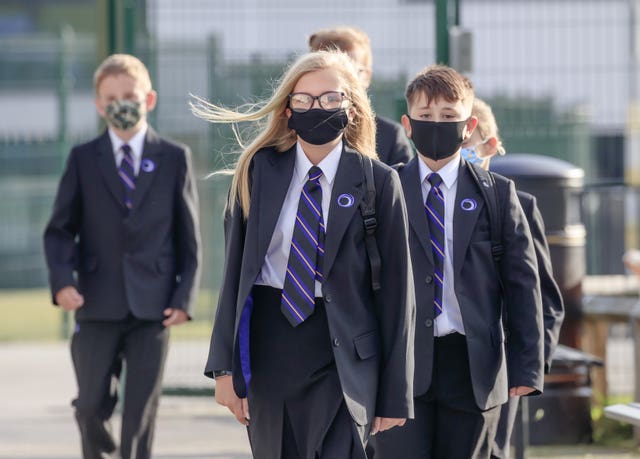Pausing daily testing in schools latest in string of education U-turns
Previous guidance will be suspended in all but a small number of secondary schools and colleges.

Pausing daily testing in secondary schools is the latest in a string of about-turns by the Department for Education (DfE) since the coronavirus crisis began.
Previous guidance from the Government said pupils would not need to self-isolate if another student or staff member tested positive in their “bubble” if they agreed to be tested once a day.
But this will now be suspended in all but a small number of secondary schools and colleges, where it will continue alongside detailed evaluation, according to the department.

It comes after Public Health England (PHE) recommended that the daily testing of pupils and teachers in secondary schools should be paused as the balance between the risks and benefits is “unclear”.
The main rollout of rapid testing will continue, the DfE added, where lateral flow tests are used twice weekly to identify positive cases among staff and pupils.
Here the PA news agency looks at other education-based U-turns since March.
– The first primary school return
Following the first national lockdown, Education Secretary Gavin Williamson set out ambitions in early May that all primary-age children would return to school for at least four weeks before the summer break.
But on June 9, he said there was “no choice” but to scrap those plans amid concerns that the two-metre social-distancing rule would make a full return impossible.

– School meals voucher scheme
Following pressure from a campaign headed by England footballer Marcus Rashford, the Government reversed its decision not to extend the children’s food voucher scheme into the summer holidays.
Cabinet minister Grant Shapps said on June 16 that free school meals were not normally extended to cover the summer period, but a few hours later, No 10 backtracked, confirming that it would extend the programme.
– School face coverings
The policy that children should not be required to wear masks in school was reversed in August when the DfE announced that face coverings should be worn in corridors and communal areas by staff and students in Year 7 and above in schools in areas with coronavirus restrictions.
Mr Williamson had insisted previously that Covid-secure measures in schools meant the wearing of face coverings would not be necessary.

– A-level and GCSE results in England
Following criticism from students and headteachers, and a backlash by Tory MPs, the Government announced A-level and GCSE grades would be based on teachers’ assessments rather than a controversial algorithm devised by regulator Ofqual.
The Prime Minister and Mr Williamson had previously defended the “robust” system, which saw almost 40% of A-level grades reduced from teachers’ predictions.
The announcement on August 17, days before GCSE results were due out, followed an earlier vow from Mr Williamson that there would be “no U-turn, no change”.
– London school closures
Under the Government’s initial plan for learning to restart after the Christmas break, schools in the City of London and Kingston were set to reopen but those in 22 other London boroughs would have remained closed.
The Government rowed back from that idea after leaders of London boroughs criticised the plan as having “no logic” and accused ministers of ignoring “the interconnectedness of our city”.
A short while later, the Government announced a delay to school pupils in England returning to classrooms after Christmas.
Remote learning for the majority of students was extended to all schools when England entered its third national lockdown in early January.





